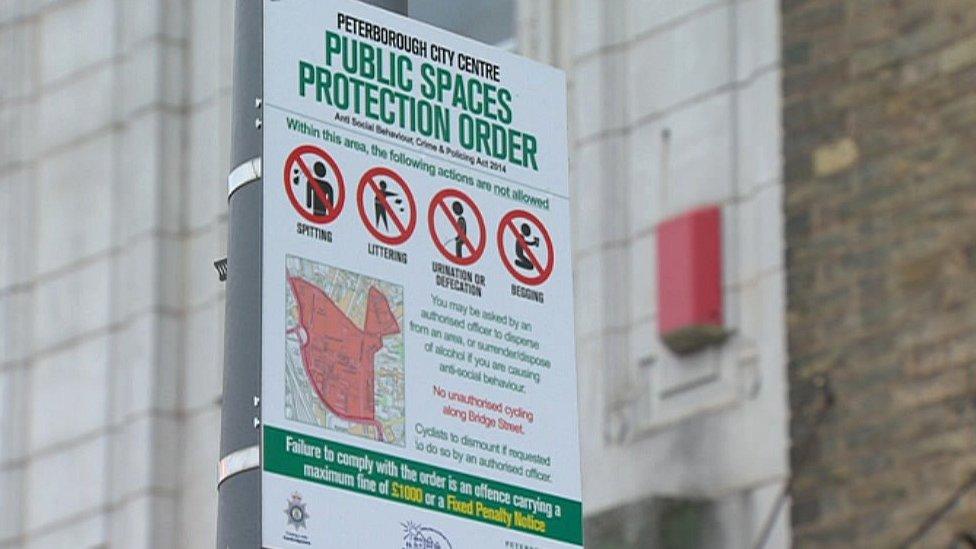PSPO: How would Sheffield's nuisance behaviour order work?
- Published
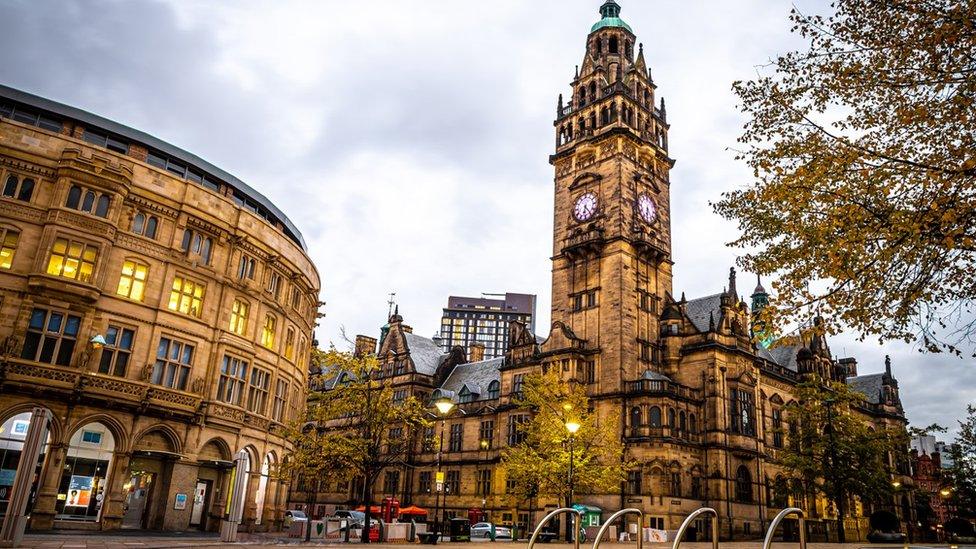
Dozens of Sheffield businesses say they have experienced anti-social behaviour in the city centre
Sheffield City Council plans to introduce a Public Spaces Protection Order, or PSPO for short, to curb anti-social behaviour in the city.
Since they were introduced in 2014 they have become another tool for local authorities hoping to make their areas safer places to live and work.
But what is a PSPO and what impact do they have?
What is a Public Spaces Protection Order?
PSPOs give councils and the police additional powers to deal with a particular problem in a certain area.
They can be a blanket order which applies to everyone at all times or they can be more targeted - such as banning the drinking of alcohol in a specific location between set times.
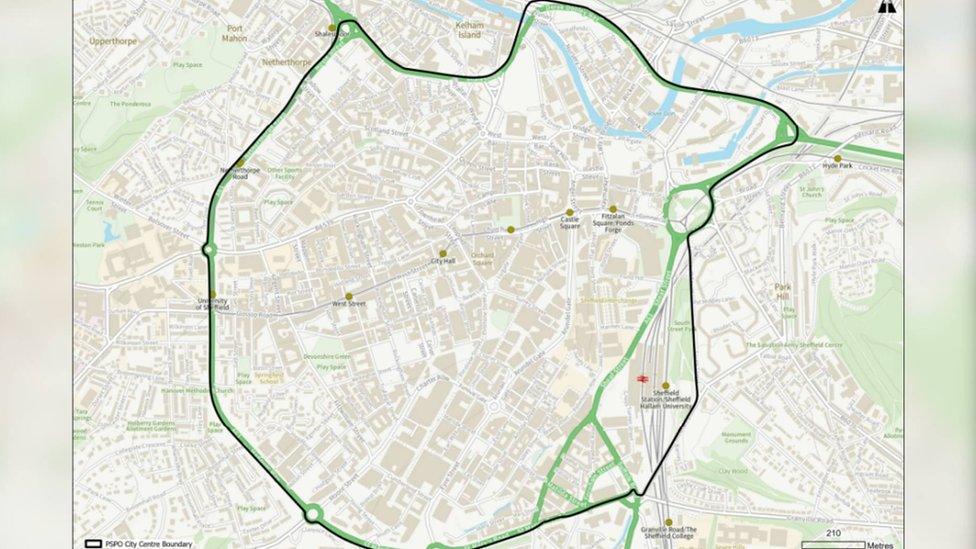
Sheffield City Council is recommending approval for the order to be brought in
Why does the council want to introduce one?
In Sheffield, the council says a particular challenge is drunk people "loitering" around.
While this isn't a crime in itself, the authority says it frequently turns into anti-social behaviour, with people becoming aggressive.
The council believes an order would help deal with this.
A survey of city centre businesses found 97 out of 100 had experienced anti-social behaviour in the last year.
Issues reported include begging on West Street, Castle Square, Moorfoot and the underpass near St Mary's Gate, along with street drinkers at Arundel Gate and Sheffield Interchange.
British Transport Police reported frequent begging, drinking and associated anti-social behaviour at the station.
People also travel to Sheffield to beg as the towns and cities where they live already have PSPOs, the city council said.
How are the orders enforced?
The proposed order would cover the whole of the city centre from Shalesmoor, out to Park Hill, down to London Road and Ecclesall Road and over to Upperthorpe and Walkley.
It would mean the council or police could issue a fixed penalty notice, to be paid to the council, or prosecute.
The council says fines will not be the default response, but rather it aims to engage and educate before it enforces.
Police say resources will prioritise hot spots and that the order isn't there to target certain groups or individuals but instead will apply to everyone within the boundary.
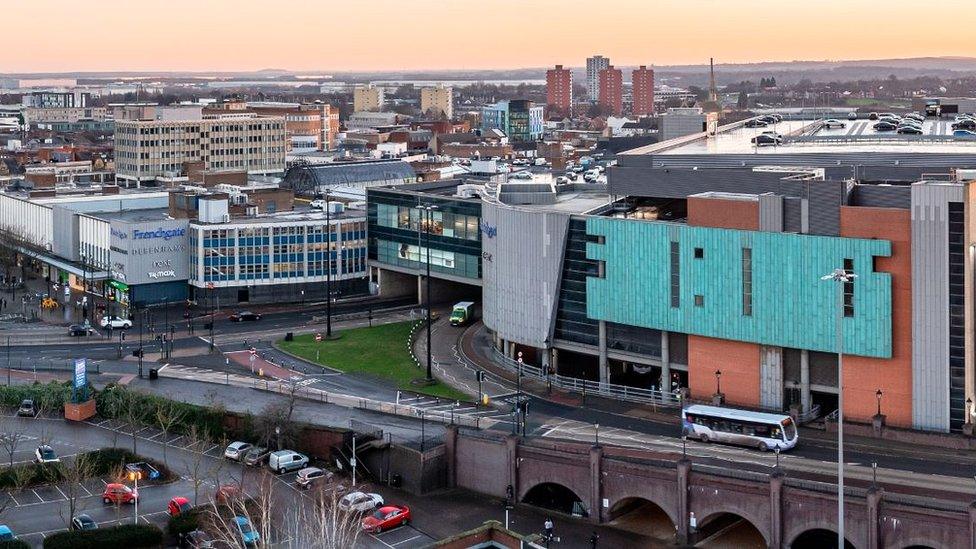
A Public Spaces Protection Order has been in place in Doncaster since 2017
What's happened in other areas which have these orders?
Barnsley was the first place in South Yorkshire to introduce a PSPO in the town centre in 2016 and Doncaster followed a year later.
Rotherham's 2017 order, covering both the town centre and Clifton Park, was extended last November after complaints about nuisance behaviour increased.
However, 70% of respondents did not think the current order had helped - although 58% supported renewing it.
Leeds in West Yorkshire introduced an order in 2020 after 86% of people agreed with the proposals.
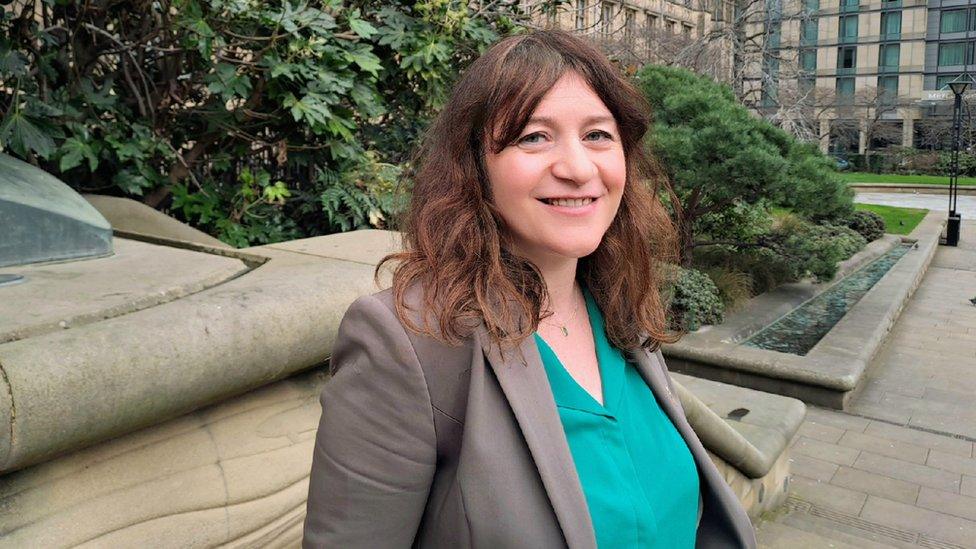
Along with her colleagues, Green councillor Marieanne Elliot says the order does not address the root of the problems
Are there any negatives?
There is a risk by bringing in a PSPO, the problems are then pushed out into neighbouring areas such as Kelham Island, Burngreave and Ecclesall Road.
The council says any bad behaviour wouldn't switch to one single neighbourhood, but it would be "diluted" across several.
Green councillors have questioned what "loitering" means and what classes as an "annoyance" with begging.
They describe it as a "blunt tool which doesn't address root causes of problems".
An order was renewed in 2022 in Bradford, West Yorkshire, but 40% of people said they did not feel any safer, while 38% said they had not seen any difference.
People felt there were not enough officers to enforce it.
How to have your say
The consultation launches on Friday and will be available on the council's website., external
The authority will also be talking to Sheffield's two universities, businesses and agencies who work with rough sleepers and those with alcohol and drug abuse issues.

Follow BBC Yorkshire on Facebook, external, X (formerly Twitter), external and Instagram, external. Send your story ideas to yorkslincs.news@bbc.co.uk, external.
Related topics
- Published30 January 2024
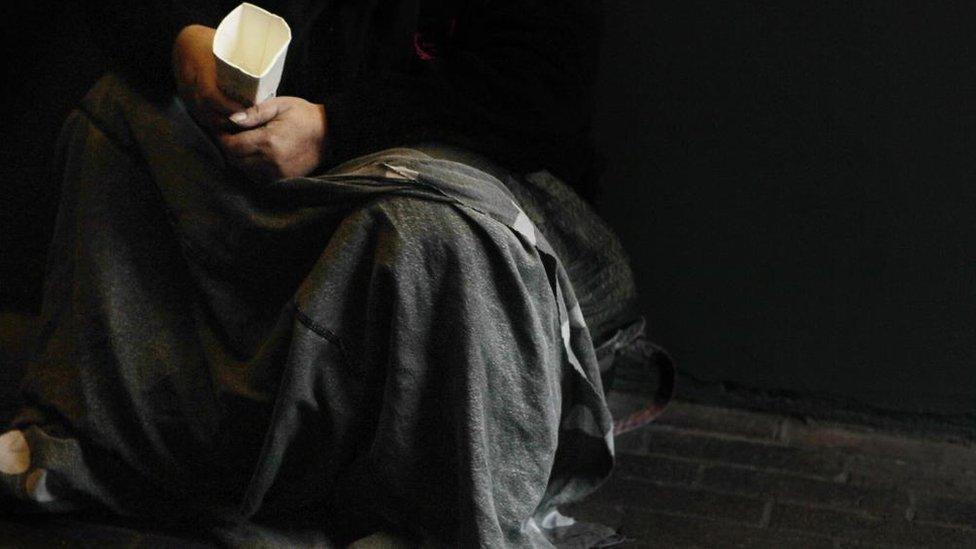
- Published10 January 2024
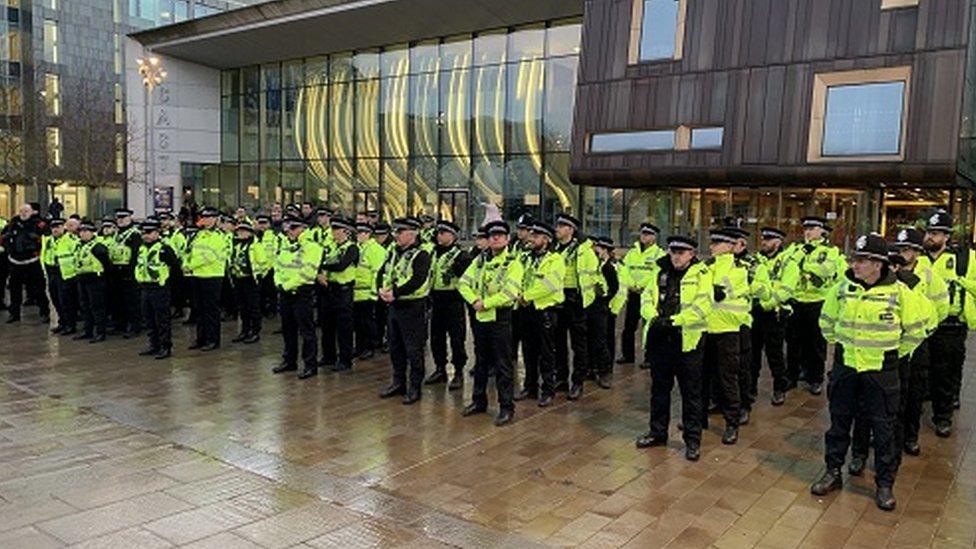
- Published13 June 2022
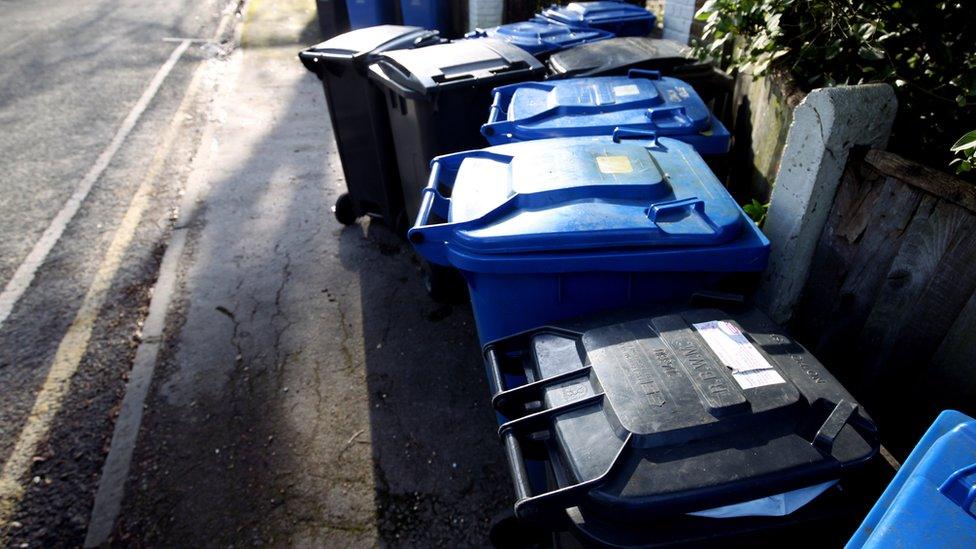
- Published5 May 2023

- Published19 April 2019
